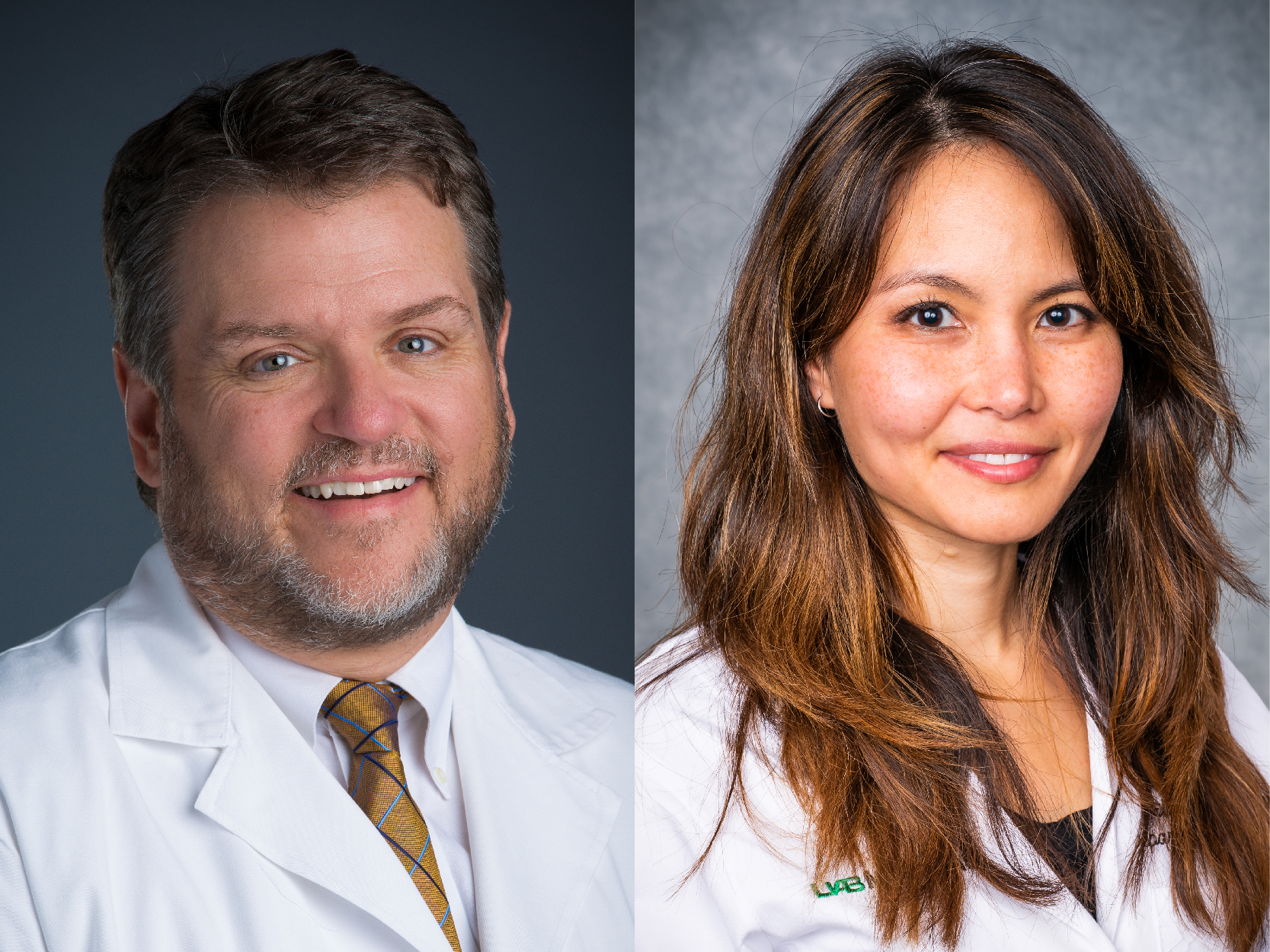 Training to become a neurosurgeon takes 11-13 years, from medical school to residency followed by a subspecialty fellowship for many. Then, during the decades of their neurosurgical career, neurosurgeons typically work very long hours, covering on-call emergency cases, and perform intricate and complex surgeries in high stakes areas that can last up to 15 hours or more in some cases.
Training to become a neurosurgeon takes 11-13 years, from medical school to residency followed by a subspecialty fellowship for many. Then, during the decades of their neurosurgical career, neurosurgeons typically work very long hours, covering on-call emergency cases, and perform intricate and complex surgeries in high stakes areas that can last up to 15 hours or more in some cases.
That has not stopped Assistant Professor Elizabeth Liptrap, M.D., and Professor Jeffrey Blount, M.D., MPH, from pursuing additional graduate opportunities through the UAB Master’s of Public Health Program. In fact, Blount completed his Master’s of Public Health (MPH) in December 2020, and Liptrap is completing the program part-time when she is not in the operating room, clinic, or conducting research.
Blount centered his studies around maternal child health, healthcare organizations and policy, biostatistics and epidemiology, and medical economics. He feels that these courses have better informed his decision-making as a healthcare provider.
“Completing my MPH has rounded out my surgical career,” said Blount. “The goal, for me as a neurosurgeon, was to formalize my training in research methods, better understand healthcare complexities, and deepen my knowledge of disease processes so that I might advocate for children with neurological diseases.”
For neurosurgeons, completing MPH courses requires carving out time from an already-limited schedule to complete hours of homework, projects, and exam preparation. Luckily, the UAB School of Public Health offers flexible course structures and many classes are offered online.
Liptrap has been hard at work in the MPH program since the fall of 2020 and has completed two semesters. Some of her favorite courses so far have been Intermediate Statistical Analysis 1 and 2 as well as Clinical Decision Making and Cost Effectiveness Analysis, where she has been a welcomed, expert voice.
“It is easy for someone who has not provided care to patients to make the logical, most-efficient decision when considering the allocation of healthcare resources,” said Liptrap. “But I like to remind my classmates of the human aspect of care and what it means to potentially tell a patient and their family that a treatment option would not be extended to them. It helps my classmates–who will likely go on to be leaders in healthcare–understand the full implications of their decisions.”
Though Blount completed the program as a seasoned neurosurgeon, he encourages faculty who are new in their neurosurgery career to consider an MPH.
“I do think there is an advantage for newly-established faculty to complete their MPH,” said Blount. “I am over 20 years into my career and am glad that I pursued my MPH. I would recommend pursuing graduate work to new or established faculty if they are passionate about the subject and if it is right for them.”
Liptrap is grateful that the department has been supportive of her academic career as a neurosurgeon.
“This program is not only an investment in improving my research and clinical practice but also in supporting our neurosurgery residents in their research. Often, residents need our faculty guidance for their research projects, and I look forward to providing excellent feedback and mentorship.” said Liptrap. “The UAB Department of Neurosurgery, particularly Drs. Market and Harrigan, are so supportive–I’m grateful for their long-term vision and their understanding.”
James Garber Galbraith Endowed Chair of Neurosurgery James Markert, M.D., MPH, is intentional in creating a department culture that supports and encourages continued learning for faculty.
“The UAB Department of Neurosurgery will always encourage our faculty, staff, and trainees to pursue higher learning opportunities,” said Markert. “Not only does it equip us to be better surgeons and caregivers, while providing an opportunity for personal growth, and also supports the advancement of neurosurgery at UAB and across the nation.”